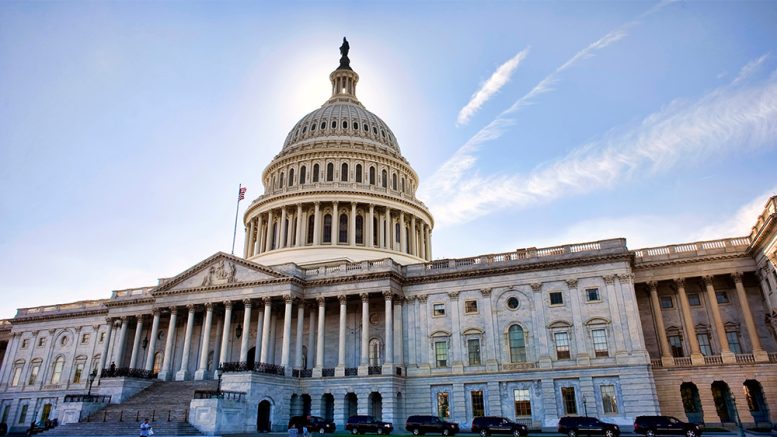U.S. Senator Mike Braun (R-Ind.) celebrated the Indiana House of Representatives approving a resolution endorsing a Convention of States to be held to add a Congressional term limits amendment to the U.S. Constitution.

Braun
Sen. Braun signed the Term Limits Pledge before being elected to the Senate and introduced the bill in the Senate to limit Senators and Congressmen to two terms and three terms, respectively.
Sen. Braun has called for a Convention of States to pass constitutional amendments for Congressional term limits and a balanced budget. He authored an amendment in 2022 that would direct the Archivist of the United States to collect petitions from states and send an official message to Congress to call a Convention of States when 34 states – the two-thirds required by the Constitution – had passed petitions, citing that career politicians have relied on the lack of a formal system for these petitions to avoid term limits and spending accountability that would likely result from a Convention of States.
“The American people want term limits in Congress,” Braun said. “I signed the Term Limits Pledge and introduced the bill to term-limit Senators and House Reps in the U.S. Senate, and I applaud the Indiana House of Representatives for taking strong action on this solution that Hoosiers from all 92 counties tell me we need.”
Background
Article V of the Constitution lays out the two processes for amending the Constitution: through Congress, or through a Convention of States.
A Convention of States is not a “Constitutional Convention” like the one convened in 1787 to write the U.S. Constitution; amendments need to be passed by the Convention of States and then ratified by three-quarters (38) of all states.
Some commentators have incorrectly claimed that a Convention of States would become a “free-for-all” after convening. Indiana’s resolution, authored by Rep. Dave Hall, specifically calls for a Convention of States for applying term limits to Congress. Nineteen states have passed Convention of States resolutions calling for a Convention explicitly to “limit the power and jurisdiction of the federal government, impose fiscal restraints, and place term limits on federal officials,” with seven states having passed this resolution in one chamber but awaiting action in the other, and 16 further states considering this resolution.
A Convention of States, convened under the authority of Article V of the Constitution, passing amendments ratified by 38 out of 50 states, would be exactly how the Constitution is supposed to work.
Considering that any constitutional amendments passed by a Convention of States would also need to be ratified by 38 states, measures with overwhelming support among the public and state legislatures but limited support among career politicians in Washington, D.C. – like term limits for Congress and a balanced budget – are the likely candidates for successful amendments.
Term limits for Congress is perhaps the most popular political idea in the United States, with support crossing all party and demographic lines: “A 2021 poll conducted for U.S. Term Limits, which advocates for congressional term limits, found that of 1,000 ‘general election voters nationwide,’ 80% said they would ‘strongly’ or ‘somewhat’ approve of a constitutional amendment limiting congressional terms.” (Congressional Research Service, 2023)
Holding a Convention of States for these amendments is extremely popular. In July 2022, an opinion poll by Trafalgar found that 65 percent of likely voters would support a Convention of States to propose amendments focusing on term limits for Congress, federal spending restraints, and limiting the federal government to its constitutionally mandated authority. The party breakdown on the poll meant that 81 percent of Republicans, 63 percent of independents, and 50 percent of Democrats want a Convention of States for these purposes.
In an RMG Research poll conducted in Indiana 76 percent of likely voters in Indiana support term limits on Congress, across political lines.

